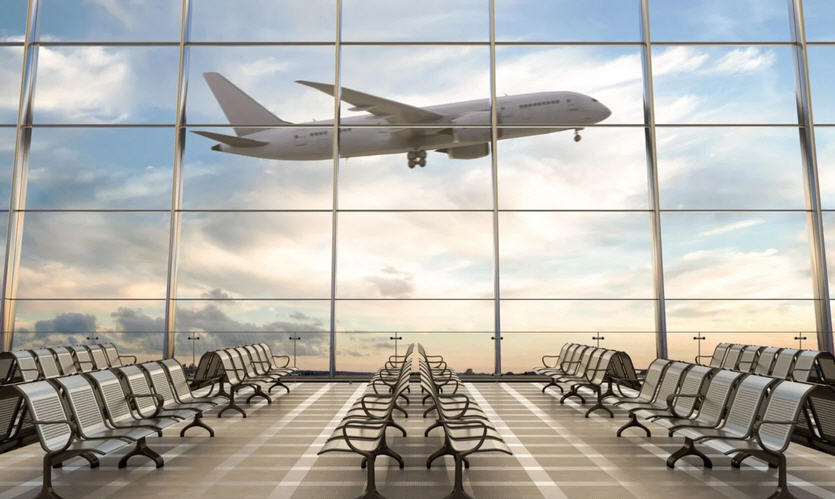
As we bid farewell to summer and embrace the remainder of 2023, we hold out hope for more affordable air travel in the coming autumn and holiday season.
Our aim is to equip you with effective strategies for securing the most budget-friendly airfare. However, the elusive airline deal you seek is contingent on several factors.
Summertime and holiday flights have long been associated with exorbitant prices, a trend further exacerbated this year by inflation, limited flight options, heightened travel demand, and weather-related disruptions.
You may have come across advice suggesting that the day and time of your flight booking can significantly impact the cost. Perhaps you’ve heard of a relative who swears by snagging incredible deals by booking flights at precisely 12:01 a.m. on a Wednesday. Or maybe a friend insists that setting a reminder for 1 p.m. on a Thursday is the key to securing the best fares.
Indeed, there’s no shortage of such rumors and “studies.” But does the timing of your flight purchase genuinely influence the price you pay, especially at a time when expenses seem to be mounting? Let’s explore what airfare experts have to say about the role of timing in airfare savings.
Is there an optimal day to book flights that’s cheaper than others?
In the past, there was some truth to the notion that certain days were more conducive to finding flight deals. However, recent research from booking app Hopper suggests that this is largely a myth nowadays. The app’s data indicates that this applies to fewer than 2% of routes and results in savings of just 6%.
Hayley Berg, the lead economist at Hopper, emphasizes that there’s no one-size-fits-all rule for booking flights. Hopper relies on eight years of data and a whopping 70 trillion flight prices to recommend the best times to book for specific routes and dates. According to Berg, the idea of a specific “golden rule” for booking, like “booking on a Tuesday,” is a common myth. Prices fluctuate frequently and are highly dependent on variables such as the route and travel dates, making it impossible to guarantee a universally optimal day for booking.
So, when should you book your flights for maximum savings?
For domestic trips, The Points Guy (TPG) recommends closely monitoring prices three to four months before your departure date and being prepared to book one to two months in advance. For international travel, TPG advises starting to track prices six to seven months in advance and planning to book three to five months before your journey.
While there may not be a single magic day to secure cheaper airfare, Bob Harrell, an airfare consultant who analyzes airline pricing, points out that airfare prices can fluctuate throughout the week. Airlines closely observe customer demand and booking patterns to determine fare adjustments, whether it involves opening or closing fare types or raising and lowering existing fares.
How can you use this information to your advantage when booking airline tickets?
One practical approach is to use a price monitoring tool for real-time updates, as suggested by Berg. She specifically recommends Hopper’s Flight Watch tool for tracking the prices of your desired route before booking. This tool will alert you when prices hit their lowest point.
Whether you opt for a tool or not, a general guideline is to start monitoring flight prices three to four months in advance and anticipate booking one to two months ahead. Berg highlights that, for most domestic trips, airfare tends to drop between one and three months before your departure, with prices increasing in the final three to four weeks before takeoff. During this time frame, airlines are more likely to offer lower average prices, promotional discounts, and ultra-low fares, making it an opportune period for booking.
For international travel, the timeline shifts, with the need to start monitoring flight prices six to seven months in advance and aiming to book three to five months in advance. Berg emphasizes that planning ahead is essential when traveling internationally to secure the most economical airfare. Travelers often overpay when booking international flights either too far in advance or too close to the travel date.
What’s the best day to travel?
While airfare prices may fluctuate depending on when you book, midweek travel, particularly on Wednesdays, is generally more budget-friendly than flying on weekends. According to data from Hopper, travelers who opt for midweek flights throughout the year can save an average of $56 per ticket on domestic airfare. This savings figure increases to over $60 per ticket during busy spring break and summer vacation months, while midweek holiday travel can result in savings of $100 or more.
The same principle holds for international travel. A weeklong long-haul journey that commences midweek averages $70 less than the same trip starting on a weekend, as reported by Hopper.
When should you book holiday travel?
For winter holidays, booking flights during midweek, from Tuesday to Thursday, can yield savings ranging from $80 to $130. The prime time to book Thanksgiving trips is typically in September and early October, with Hopper predicting potential savings of at least $100 during this period.
CheapAir.com, which analyzed 11,000 travel itineraries to determine the best months for booking holiday flights, notes a 12% increase in Thanksgiving airfares compared to 2022 prices. The website advises travelers to plan and book early due to rising airfare costs during the holiday season.
Similar recommendations apply to Christmas flights. Hopper suggests that September and October are the optimal months for booking the cheapest Christmas flights. According to CheapAir.com, winter holiday flight prices have increased by 11%, with September remaining the best month to secure affordable holiday flights.
Additionally, Google’s 2023 flight booking trends report indicates that average flight prices around Christmas are at their lowest 71 days before departure. Google Flights has introduced new insights, enabling travelers to identify the historically lowest prices for their desired travel dates and destinations.
In conclusion
While there may be no magical day or time for securing the best airfare prices, the consensus is that midweek flights, specifically on Wednesdays, are generally more economical for both domestic and international travel. Weekend flights typically come with a higher price tag. Ultimately, the dynamics of airfare pricing mirror those of supply and demand, as explained by Harrell.
Remember that these recommendations also extend to cash fares. If you’re using airline miles for your journey, it’s advisable to start checking and booking well in advance.

